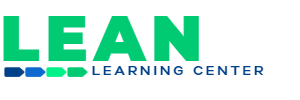Change is a constant in the business world, yet it’s often met with organizational resistance. This resistance can stifle growth, hamper innovation, and prevent the successful implementation of Lean transformations aimed at improving efficiency and value. Lean leadership, with its focus on continuous improvement and respect for people, offers valuable lessons in overcoming this resistance. Let’s explore strategies that Lean leaders use to navigate and diminish resistance to change, fostering a culture that embraces adaptability and continuous learning.
Understand the Roots of Resistance
Resistance to change often stems from fear: fear of the unknown, fear of loss, or fear of failure. Employees might worry about the impact on their jobs, routines, or sense of security. Lean leaders recognize these fears and address them head-on. For instance, introducing a new production method in a manufacturing setting may cause worry among the workforce. Leaders can mitigate this by explaining the change’s benefits and offering reassurance and support. They communicate the change’s rationale, highlighting improvements in safety and efficiency that benefit everyone.
Communicate Clearly and Continuously
Effective communication is crucial. Lean leaders ensure communication is clear, continuous, and two-way. They share the vision behind the Lean transformation, including specific goals and steps. Open lines of communication allow for feedback, questions, and the dispelling of rumors that might fuel resistance. For example, when a retail company implemented a new inventory system, the leadership team held town hall meetings to explain how the system would make work easier and improve stock accuracy, directly benefiting employees by reducing their workload and stress.
Involve Employees in the Change Process
Involvement is a powerful tool. Lean leaders involve employees from the start, seeking their input and involving them in decision-making. This approach not only leverages the team’s collective knowledge and creativity but also helps employees feel valued and invested in the change. A healthcare provider looking to improve patient flow involves nurses and doctors in designing the new process, leading to innovative solutions that increase patient satisfaction and staff morale.
Provide Training and Support
Lean leaders mitigate fear of the unknown by providing training and support. This includes technical training on new processes or tools and coaching on problem-solving methodologies. For instance, a software company transitioning to a new project management tool offered extensive training sessions and a ‘help desk’ for ongoing support, transforming uncertainty into confidence.
Model Resilience and Adaptability
Lean leaders lead by example, showing that it’s okay to make mistakes as long as you learn from them. By sharing their own experiences of adapting to change, they help create a culture where change is seen as an opportunity. A case in point is a food service company’s CEO who personally took part in a new service model pilot, demonstrating commitment and openness to learning from the frontline experience.
Celebrate Wins and Recognize Efforts
Acknowledging and celebrating wins, no matter how small can help build momentum and diminish resistance. Lean leaders recognize efforts and celebrate successes, reinforcing the benefits of change and showing appreciation for hard work. A logistics firm implemented a ‘small wins’ program that spotlighted individual and team achievements monthly, boosting morale and engagement.
Overcoming resistance to change requires understanding, communication, involvement, support, leadership by example, and recognition of efforts. By adopting these strategies, Lean leaders can navigate the complexities of change, reducing resistance and fostering an organizational culture that embraces continuous improvement and adaptability. This approach paves the way for successful Lean transformations, enhancing efficiency, value, and overall competitiveness.
Discover how our lean solutions can elevate your operations. Contact us for a free consultation!




